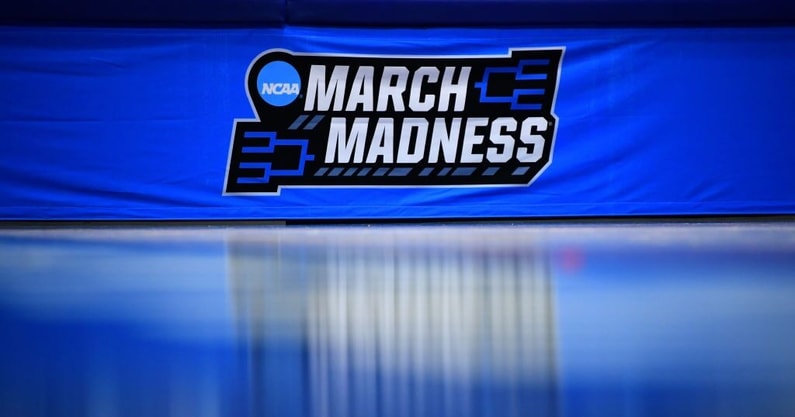NCAA bans specific commercials from March Madness broadcast

With March Madness and the NCAA Tournament set to begin fully, the NCAA took a strong stance on specific commercials during their game broadcasts. The NCAA ruled that commercials for sportsbook operators will not be allowed during broadcasts of NCAA Tournament games, continuing their strong position against gambling on college games.
NCAA clamps down on sports betting commericals
The NCAA has been a major opponent against the rise of sports betting websites across the nation as they become more and more commonplace. While the NFL and major companies like ESPN have embraced the new revenue streams, the NCAA has doubled down on their intents to keep the college level free of gambling.
While they may not have any official power to stop fans from betting, the NCAA has chosen to flex the power they do wield in this case — by disallowing any commercials from sportsbook operators during their games. March Madness is a dominant television event across multiple channels and primetime television time slots, making this a meaningful ban against betting companies.
“Commercials for sportsbook operators will not be permitted during NCAA tournament games, per NCAA,” explained ESPN’s David Purdum on Wednesday.
Top 10
- 1Breaking
Jalen Milroe
Bama QB declares for draft
- 2New
Brett Yormark
Big 12 wants targeting review
- 3
Jimbo Fisher
Flashes Hook'em at Texas fans
- 4Hot
Solution for targeting
Connor Stalions weighs in
- 5
Will Howard denied
Rose Bowl officials refuse to let QB on stage
Get the On3 Top 10 to your inbox every morning
By clicking "Subscribe to Newsletter", I agree to On3's Privacy Notice, Terms, and use of my personal information described therein.
The NCAA’s efforts against sports betting on their games has increased since the landscape of betting in America changed seemingly overnight in 2018. The Professional and Amateur Sports Protection Act, also known as PASPA, was signed into law in 1992. The bill essentially served as a federal ban against states offering legal sports betting, with some exceptions such as Nevada.
In 2018, the U.S. Supreme Court ruled that PASPA was unconstitutional, opening the floodgates for states to allow legal sports betting and changing the landscape of sports advertising. The NCAA did not embrace this new change, and in 2020 the NCAA filed a trademark application for the phrase, “DON’T BET ON IT.”
“Sports wagering has the potential to undermine the integrity of sports contests and jeopardizes the well-being of student-athletes and the intercollegiate athletics community,” reads an official statement on the NCAA website. “It also demeans the competition and competitors alike by spreading a message that is contrary to the purpose and meaning of ‘sport.’ Sports competition should be appreciated for the inherent benefits related to participation of student-athletes, coaches and institutions in fair contests, not the amount of money wagered on the outcome of the competition.”